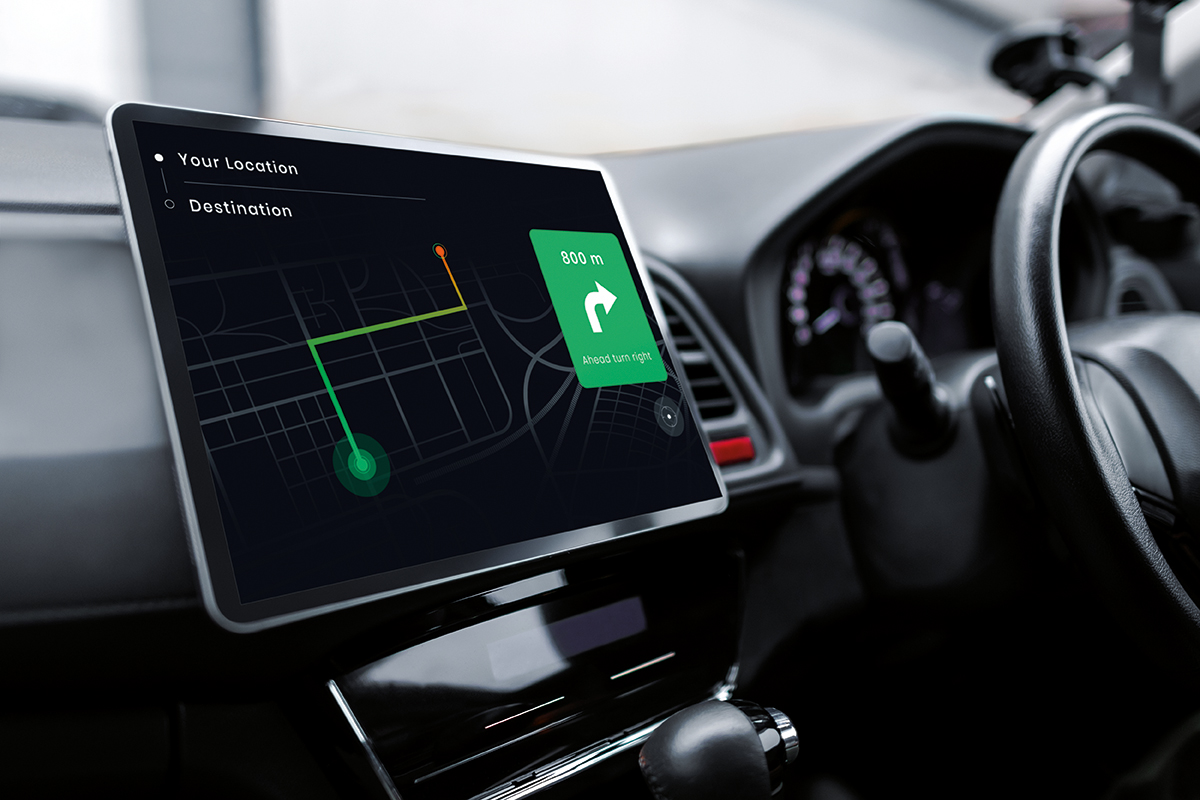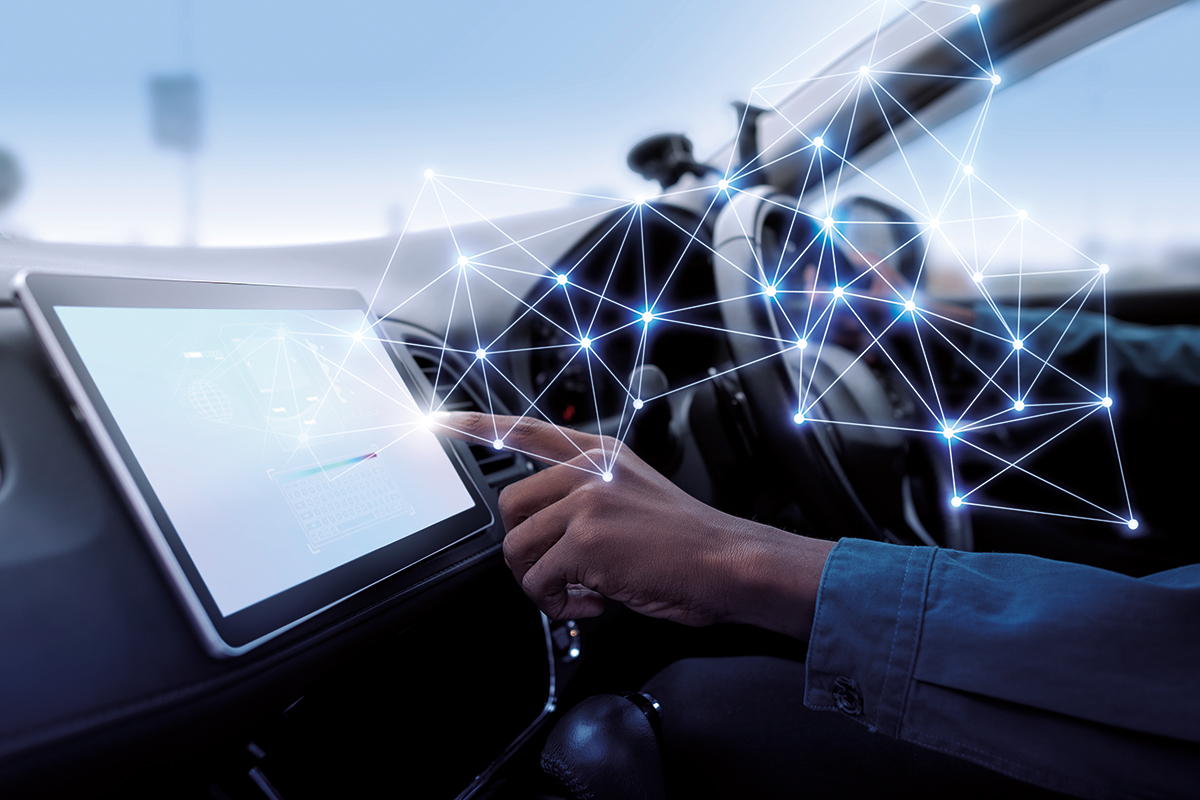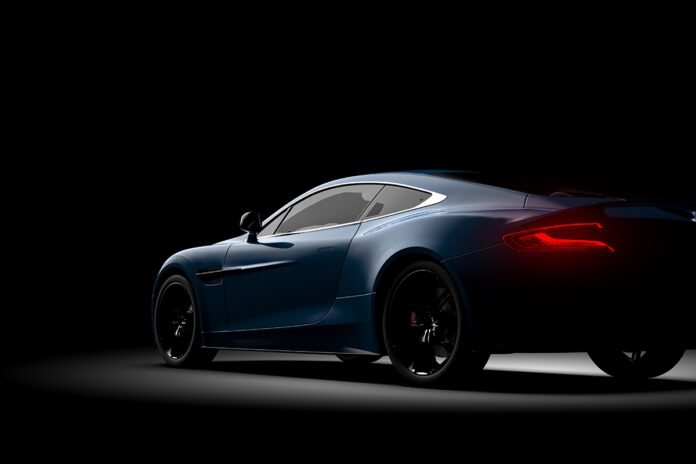Players old and new are scrambling for a slice of the lucrative automotive operating systems market, but there’s more to this than meets the eye.
Earlier this year, when Apple held its annual Worldwide Developers Conference, one of their launches caught the eye a bit more than others. No, it wasn’t a sneak peek at Project Titan (Apple’s hotly rumoured electric car project). It was something much humbler, yet of great importance. CarPlay, a known commodity to many, was getting a makeover, and it will essentially turn your car’s dashboard into a giant iPhone.
With Google and Apple already engaged in a tussle for supremacy on multiple fronts, it was simply a matter of time before the automotive arena became the latest playground in a titanic game of tug of war. Google might well have the first-mover advantage with Android Automotive; it’s opensource, allowing for easy integration with native platforms like (Volvo’s) VolvoCars.OS. Little surprise that others see the business value in this too, with Automotive’s adoptees including Ford, Stellantis — which owns 15 brands including Fiat, Maserati, and Jeep — EV startup Lucid Motors, the Renault–Nissan Alliance, and Honda, with BMW one of the latest to adopt it.
Android has a huge market share as well, and Apple’s famous sandbox approach sees it only mirror the iPhone. But this 2023 update corrects that entirely, allowing for much deeper integration for car manufacturers. And it will be available in carmakers as diverse as Volvo, Ford, Honda, Renault, Mercedes, and Porsche.
So, what inspired Apple, that company that so famously controls its hardware and software, to license an operating system to outsiders? This move is an unprecedented one in the history of the company, but it had to be done to tap into a generational opportunity too good to pass up.
A $14 Billion Tech-Tonic Tussle

As cars become ever more intelligent, it is software that controls most aspects of our cars, right from the driver-assist systems looking after adaptive cruise control and autonomous driving to the pieces of code that bring the car to a halt when we step on the brakes—or the car brakes for you, as it is with an advanced driver-assistance system.
With things heating up, interest and investments have flowed into the space, with smart mobility and autonomous vehicles high on the agenda for all. The automotive operating systems market is expected to reach USD 14 billion by 2030, according to a research report by Global Market Insights. And as large-scale players, and venture capitalists put their money where their mouth is, the market space simply gets racier and hotter than ever.
Android Automotive’s early moves have seen it garner a huge head-start over peers, with Gartner predicting that 70% of cars sold in 2028 will sport it. But don’t expect Apple, Amazon, and the likes to simply stand by and let Google own the operating system space across hundreds of millions of vehicles.
Google and Apple have been making googly eyes (excuse the pun) at all things automotive for the best part of a decade, infusing their essence into dashboards, infotainment systems, and even going so far as to assemble a team to build an autonomous vehicle, as Apple has. Beyond the argument for cars being computers or smartphones on wheels, it represents an incredible opportunity to attract new customers to their respective digital ecosystems, further entrenching their standing in the space.
Simply put, acquiring consumers leads to the acquisition of priceless data, which can lead to the acquisition of still more consumers and data, creating a virtuous cycle of sorts that represents a massive competitive advantage. In automotive terms, it’s a flywheel at work. While some manufacturers might not want to play ball with Apple or buy into Google’s services, they might simply have no choice. With billions of Android and Apple users worldwide, market forces will ensure that something has to give. And it’s not just them either; Amazon’s Alexa is an option for increasingly more cars, with some models offering Alexa Built-In, where you can use the digital assistant just as you would with any other device.
Contingency Plans Rev Up

Spare a thought for the car companies in the mix, though. They are faced with something of a Hobson’s Choice, having to create software on par with that of Silicon Valley’s leading tech companies or lose to offerings from competitors like Tesla. While embracing big tech can address consumer desires, there does emerge an awkward dynamic over the exact nature of the user experience, and who controls the data produced. Because, let’s be honest, data really is the new oil.
It’s a delicate tightrope for automotive manufacturers to tread, deciding which pieces of the experience to keep in-house, and which ones to jump into bed with Silicon Valley doyens. To do the latter promises a better user experience, but less control over data and almost definitely some sources of future revenue. Unfortunately, as customers start to prefer one operating system or the other, they may have no choice but to cede control, perhaps leading to cars being little more than smartphones on wheels, be it powered by Apple, Google, or anyone else.
To hedge their bets against exactly the kind of scenario that would see them cede the high ground, myriad manufacturers are ramping up plans to build their own operating systems. Case in point: Volvo. The Swedish manufacturer always marched to their own drumbeat, and VolvoCars.OS is a perfect illustration of this. As a software platform developed in-house, it is perfectly poised to comprehensively manage their vehicle. This is not to be confused with their use of Android Automotive on infotainment systems, which will continue to be so.
Other brands signing from the same hymn sheet include EV upstart and startup Lucid, which is curiously combining Android Automotive with Amazon’s Alexa assistant. Stellantis is pondering much the same, using Android Automotive on some of its vehicles, and a slew of Amazon’s services available in others. The bespoke use of existing operating systems can certainly help these companies create unique user experiences that helps them stand apart.
With a glut of options out there for software and systems, expect experimentation to continue, with too many facets for any one company to master, even if they answer to the name Google, Apple, or Amazon. It will be a battle of attrition, one waged over a decade or perhaps more, given the generally conservative nature of progress in the automotive industry.
Big Tech is Watching

It is a given that most cars will support one of Android Auto, Apple CarPlay, or Amazon Alexa these days – and in time, as in the case of Volvo, a mix of Google and Amazon integration. One can only image the amount of data this will churn out, piquing the attention of antitrust agencies and lawmakers.
Consumer privacy is already a concern for users, and the copious amount of data churned out from vehicles only serves to complicate that. Google already mines a wealth of data from browser and smartphone usage; Amazon already knows your shopping history, preferences, and likely what you want to or need to purchase; Apple already has a dominant lead in wearables and a strong presence in smartphones; now imagine letting them into your personal vehicles, and the amount of insight that could offer. Driving in that direction? Perhaps this ad or prompt could nudge you towards trying this new coffee shop you might like, or perhaps we can tempt you to go shop at this mall that houses most of the brands you prefer. Smartphones were just the beginning; cars are the next battleground.
While Big Tech’s offerings are much better than anything historically doled out by carmakers, they also extract their pound of flesh. And as the underlying technology gets ever more complex, tech will become increasingly integrated into our day-to-day lives, becoming inescapable. And the biggest players are moving to cement their positions; Alphabet (Google’s parent company) owns self-driving tech startup Waymo; Amazon bought Zoox, an autonomous vehicle startup, and has a stake in electric carmaker Rivian. Even Microsoft, that old warhorse, has an investment in Cruise, a self-driving electric car ride and delivery service. And Apple’s own car program will likely see them own the hardware and software, as they do for all their products and services.
Before smartphones came along, we did not know a world in which we relied on them so greatly. And so it might well be with cars, as tech gets embedded ever more. The product and use experience might be greater, but it might well be a Faustian pact with a price too high.


